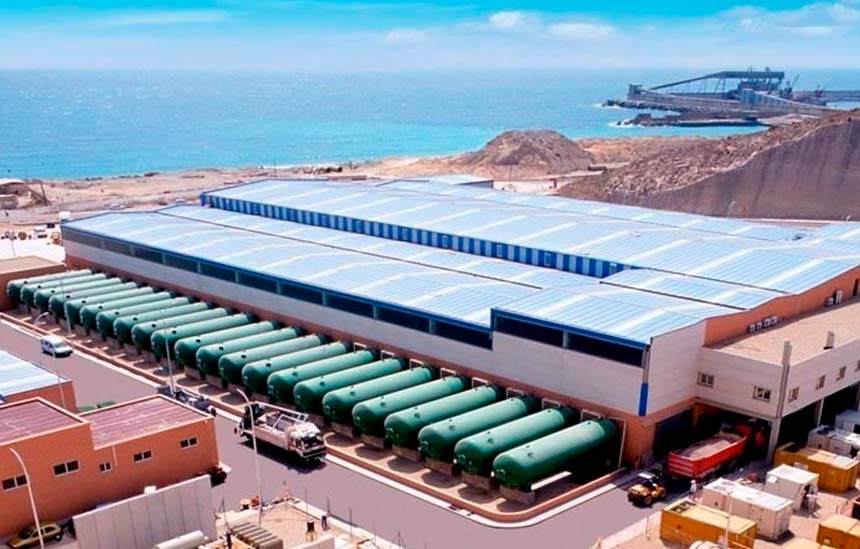The company Sacyr Agua SL has been selected to draw up the construction project and carry out the works to improve the energy efficiency of the desalination plant in Carboneras, Almeria, Spain, with an investment of more than 29.7 million euros and a completion period of 48 months, as published on the State Contracting Platform of the Spanish Ministry of Finance. This project was initially valued at more than 40.4 million euros (US$44.3 million).
Last July, the list of the seven bids for the tender was made public: Acciona Agua, S.A.; Aquambiente, Servicios para el Sector del Agua S.A.U.; Global Omnium Medioambiente, S.L.; Cox Energy Europe S.L.U.; Global Omnium Medioambiente, S.L.; and Cox Energy Europe S.L. – Cox Energy Europe S.L.U.; GS Inima Environment y Sacyr Agua, S.L.; UTE FCC Aqualia S.A. – Construcciones Sánchez Domínguez-Sando, S.A.U. (SANDO) – SANDO Agua, S.L.; and UTE Tedagua – Dragados – Drace. Of these, it was agreed to exclude the bid submitted by Global Omnium Medioambiente, S.L. – Cox Energy Europe S.L.U. as it did not adequately present the documentation requested in envelope number 3, in accordance with the provisions of the PCAP.
Finally, the bid presented by the company SACYR AGUA, S.L. for an amount of €24,576,429.30 (VAT not included), was chosen.
The Carboneras desalination plant was designed in 1999 and began operating in 2005. It is one of ACUAMED’s oldest plants and, therefore, “one of the least efficient from the energy point of view”, as at the time it had the latest technology available to harness the surplus energy from the desalination process (Pelton turbines), whose efficiency has long since been surpassed by other equipment based on isobaric chambers. In 2016, as part of the current operation and maintenance contract, a partial replacement of Pelton turbines with isobaric chambers was carried out on two of the twelve production lines, making it necessary to improve the desalination plant’s energy efficiency by replacing all the remaining Pelton turbines in this latest contract. This will allow the current ten production lines to become five, doubling the output of each line and maintaining the supply of desalinated water.
Source: Smart Water Magazine

